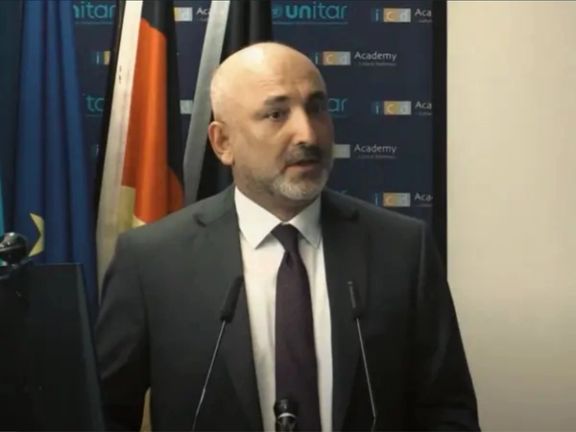Terrorists In Afghanistan & Pakistan Are Treated Selectively, Says Former Afghan FM

Hanif Atmar, the former Afghan Foreign Minister, has stated that there is a dual approach to dealing with terrorists in Afghanistan and Pakistan.

Hanif Atmar, the former Afghan Foreign Minister, has stated that there is a dual approach to dealing with terrorists in Afghanistan and Pakistan.
Atmar, confirming reports of the spread of terrorism in Afghanistan, warned that without ensuring peace and stability in the country, neither regional nor global peace will be achievable.
Atmar's remarks refer to the Taliban regime in Afghanistan and the Pakistani government.
On Monday, July 29, at the Institute for Cultural Diplomacy in Berlin, he remarked that the current approach to terrorism is selective, with distinctions made between 'good' and 'bad' terrorists. He suggested that this selective strategy undermines efforts to effectively combat terrorism.
The Pakistani government labels Tehreek-e-Taliban Pakistan (TTP) as a terrorist group and is fighting against it.
TTP maintains close ties with the Afghan Taliban, and TTP leaders have pledged allegiance to Mullah Hibatullah, the Taliban leader. Despite this, Pakistan has supported the Afghan Taliban and played a prominent role in their rise to power in Afghanistan.
The Taliban in Afghanistan also claims to have eradicated ISIS. However, according to international reports, groups such as Al-Qaeda, TTP, and Central Asian terrorists have taken refuge and grown under Taliban control in Afghanistan.
Despite the Taliban's harsh stance against ISIS, the UN Security Council's Sanctions Monitoring Committee recently stated that the terrorist group continues to expand its influence in Afghanistan and has managed to infiltrate the Taliban's security system.
The former Foreign Minister also discussed the third Doha meeting on Afghanistan, describing it as "two steps forward and two steps back”.
Atmar said that the Taliban's policies regarding women do not reflect Afghan cultural norms and do not represent Islam. He criticised the third Doha meeting for failing to include women, political parties, and civil society, calling it a significant failure.
He added that the imposition of authoritarian and stringent Taliban policies and the deprivation of Afghan women’s rights have led to poverty and migration, which poses a threat to the region and the world. Atmar called for international support for intra-Afghan negotiations, stating that any negotiation and dialogue would fail in the absence of all internal parties, and peace and stability in Afghanistan would not be achieved.
He emphasised that peace and stability are impossible without securing women’s rights, human rights, and a legitimate government in Afghanistan, and no Afghan would agree to reconcile with the Taliban unless these three conditions are met first. He also noted that no country is willing to accept the risk of recognising the Taliban without meeting these conditions.
In part of his speech, Atmar addressed the factors behind the collapse of the system and the failure of democracy in Afghanistan, attributing it to the actions of previous leaders, Taliban leaders, unilateral US decisions, and Pakistani military policies. He added that after the collapse of the system, all four groups failed.
Atmar was a prominent figure in the previous Afghan government, with a background of working in the Ministry of Interior, Ministry of Foreign Affairs, Ministry of Education, Ministry of Rural Development, and the National Security Council of Afghanistan.